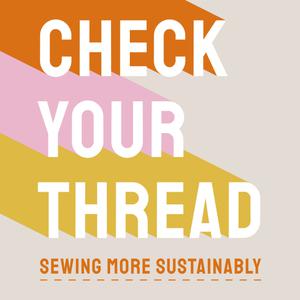
Check Your Thread
Zoe Edwards
Hello! Welcome to Check Your Thread, a podcast about sewing more sustainably. Each episode we enjoy nerding out about sewing, whilst picking up ideas and useful tips for how to reduce our impact on the environment. My aim is always to approach topics with a sense of curiosity and fun, and hope to leave our listeners feeling inspired by the end of each episode. Examples of topics that we cover include sourcing second hand textiles, zero waste sewing patterns, mending, upcycling, scrap-busting and alternative and surprising sources for fabric. If there are any topics you’d like CYT to cover, anyone you’d like me to get on the podcast to chat to or you’d just like to say hi, please email me at [email protected] or message me via Instagram @checkyourthread.
- #167: No-Rules Outdoor Clothing Repair with from Rosanna Snowdonia Gear Repair
Outdoor clothing and equipment often pose some very specific problems when they start to break. This is my second episode with Rosanna Watson from Snowdonia Gear Repair, and in this one she offers up tips for repairing down and puffy jackets, and items with seams and zips that are glued. And, on top of sharing her practical advice, Rosanna puts everything into perspective with her repair philosophy: that you don’t have to make the garment look like it did when it left the factory, it just has to function!
Support the podcast over on Patreon!
The Snowdonia Gear Repair team (left-right: Rosanna, Jos, Sadie and Ceri):
You might have previously heard Rosanna on Check Your Thread in Episode 94 when we had a feedswap with the Garmology podcast and last week’s episode:
Check out the Snowdonia Gear Repair website and follow them on Instagram (@snowdoniagearrepair).
They also now host in-person repair classes!
Other repair experts to follow on Instagram:
Skye from Slow Stitch Club has written a book called ‘Well Worn: Visible Mending for the Clothes You Love’:
Rosanna recommends glues/adhesives by Gear Aid. Snowdonia Gear Repair stock some via their website if you’re based in the UK.
Sources for repair-sized (or larger) amounts of outdoor fabrics:
Author Rachel S. Gross wrote a book called ‘Shopping All the Way to the Woods: How the Outdoor Industry Sold Nature to America’.
Pics of the Snowdonia Gear Repair shop and workshop:
20 January 2025, 10:30 am - #166: Pro Tips for Outdoor Wear Care and Repair with Rosanna from Snowdonia Gear Repair
The clothes and equipment you buy to spend time outdoors often requires a sizable investment. And when they break, the idea of fixing them yourself might seem pretty daunting. Over the next two episodes, repair-expert Rosanna from Snowdonia Gear Repair, is talking us through the repairs you can tackle yourself at home, to keep your favourite jacket or backpack in use for longer. Rosanna also advises on what to look for when buying outdoor gear in the first place, and how to best care for those items to ensure they have a long and useful life.
Support the podcast over on Patreon!
You might have previously heard Rosanna on Check Your Thread in Episode 94 when we had a feedswap with the Garmology podcast.
Check out the Snowdonia Gear Repair website and follow them on Instagram (@snowdoniagearrepair).
Jos, Rosanna's partner, doing some sewing machine maintenance in their workshop:
Rosanna recommends the various patches by Gear Aid (US site). Some of which are also available from Snowdonia Gear Repair if you’re in the UK.
Outdoor Gear Advice UK is a valuable Facebook group.
Rosanna is loving the recently published ‘Mountain Style: British Outdoor Clothing 1953-2000’ by Henry Iddon and Max Leonard.
Chris Townsend, whilst not the founder of Karrimor as Rosanna suggested, IS a widely published outdoor writer and photographer.
Nikwax create a wide range of products to help care for laminated and outerwear fabric, including their Tech Wash that cleans whilst retaining water repellency and revives breathability:
Seam seal tape for laminated fabrics are available from many sources. Here’s one source I found via a UK website.
13 January 2025, 11:00 am - #165: 5 Easy Garment Care Habits to Adopt in 2025
If I asked you what you consider fun, my guess is that laundry and garment care do not immediately spring to mind. However, keeping our clothing in good, wearable condition for as long as possible, is an important part of living more sustainably. And it really doesn’t have to be difficult or time-consuming. I’m about to share five simple practices that, if you turn them into habits, will give your clothes the best shot at a long and happy life.
Support the podcast over on Patreon!
(image source: Annie Spratt via Unsplash)
5 Habits for Easy Garment Care
1) Wash as infrequently as possible
2) Don’t sleep on a stain
Writer Nancy Birtwhistle (@nancy.birtwhistle on IG) is an expert on stain removal.
3) Hang dry whenever possible
I´m a big fan of my DriBUDDi!:
4a) Question if it requires ironing
4b) Iron on reverse
If you want to go deep into pressing cloths, check out this guide from Threads Magazine.
5) Store each item in your wardrobe correctly, according to garment AND fibre type
Friday Pattern Company recently released a free/pay-what-you-can garment bag pattern:
(image source: Friday Pattern Co.)
6 January 2025, 11:00 am - #164: Sewing Wins and Fails in 2024 with Lise and Meg
Are you ready to wrap up 2024, to look back at a year’s worth of sewing wins and fails, and consider some hopes and plans for 2025? I got together with two of your favourite previous podcast guests, Lise Bauer and Meg Grandstaff, to have this unapologetically lengthy conversation. So if you’ve got a long journey this festive season, or you need some company during a stint in the kitchen, let the three of us join you. Also, we answer the all important question: what forms of potato the three of us are going to be enjoying over the Winter.
Stick around a few minutes and we’ll crack on!
Guests
Lise Bauer (@miss.taeschli on Instagram)
Listen to Lise in the previous episode:
Meg Grandstaff (@the_grand_stash on Instagram)
Listen to Meg in previous episodes:
- Ep #22: Mending Workshops with Carla & Meg / Community Glue
- Ep #37: Pledges and Participants #1 with Rebecca & Meg
- Ep. #103: Swimming in a Sea of Scraps with Meg Grandstaff
- Ep. #150: Momentum and Motivation with Meg Grandstaff
Sewing Patterns & Products Mentioned
- Didi Pullover by Fibre Mood
- Bay Pants by Bel’ Etoile
- Brera Cardigan kit by We Are Knitters
- Saguaro Set by Friday Pattern Co
- Archer Button Up Shirt by Grainline Studio
- Donny Shirt by Friday Pattern Co
- I Am Sunshine Jeans by I Am Patterns (read my review post)
Social Accounts & Businesses Mentioned
- @sewover50 community
- @virtualsewingroom
- Fitting expert Kate Roberts @projectpatterns
- @destash4palestine
- Charm Patterns
- Bianca @sleepless_in_bavaria is Lise’s co-host for the Whole 10000 Yards of Yarn challenge
- @shamseldinrogers
- @pinkmimosabyjacinta is the creator of the Whole 30 Fabric challenge
- @craftyguider
Projects Mentioned
Meg's genius reinterpretation of her baby mitten fail into chair socks win!
My daughter’s ‘Goblincore’ scrappy cardigan:
My hideous knitted vest fail:
16 December 2024, 11:00 am - #163: How to Effect Change This Winter with Jeanna Wigger
Did you participate in the Winter of Care and Repair challenge last year? Do you plan to do so this year? I’m welcoming Jeanna Wigger, the challenge’s creator and host, back onto the podcast. Jeanna and I have both been thinking about how we can use the challenge to implement the changes we want to see in the world, on a personal level, community level and global level. Jeanna and I share what important actions we plan to take in the months ahead.
Support the podcast over on Patreon!
Jeanna is the creator of the #winterofcareandrepair challenge, also #winterofcareandrepair2023.
You can follow Jeanna on Instagram @thepeoplesmending.
Listen to my previous conversations with Jeanna about the Winter of Care and Repair challenge:
- Ep. #115: Winter of Care and Repair with Jeanna Wigger
- Ep. #132: A Season of Mending with Jeanna Wigger
- Ep. #135: How to Triage Your Mends with Jeanna Wigger
I plan to use the WOCAR challenge to help me enact the plans that I laid out in:
Jeanna and I are both supporters of the writer Aja Barber over on Patreon.
UK residents:
US residents:
Learn more about the OR Foundation
Fashion Revolution is another awesome organisation that can also advise on how to take action.
Discover how ethical or otherwise your current banking or investments are via Bank.Green You can also use the site to find an alternative and learn how to make the switch.
Jeanna suggests taking the Fibershed Sustainable Closet Audit.
Jeanna uses Appblock to set controls on her screen time.
9 December 2024, 11:00 am - #162: How to Solve Your Next Sewing Problem with Kim Witten
Do you find yourself coming up against sewing related problems that leave you stumped and that subsequently sap your momentum? Today, regular CYT guest and our resident coach, Kim Witten, explains how to work through our stumbling blocks swiftly and effectively. To do this, Kim shares a series of five simple questions to ask ourselves that break down any daunting challenge into something far more manageable and achievable.
Support the podcast over on Patreon!
I mentioned the Buy Me Once website for products that are built to be long lasting.
Kim Witten (@witten.kim on IG) is a transformational coach. She has appeared on the following previous episodes:
- Ep. #71: Making Personal Manifestos with Kim Witten
- Ep. #91: Self Knowledge for Sewing Success with Kim Witten
- Ep. #92: Self Coaching for Sewing Success with Kim Witten
- Ep. #110: Zoe & Kim go to the Stitch Festival
The questions Kim suggests we apply to our challenges are:
- What is the problem I’m trying to solve?
- Where are we trying to get to with this?
- How will we know when we’ve got there?
- Why does this matter?
- So where´s a good place for me to start?
Kim’s recent long-term sewing project was the Cosecha Pants pattern by Sew Liberated.
2 December 2024, 5:05 pm - #161: How to Refashion with Portia Lawrie
Are you a regular refashioner of existing textiles? Perhaps you’re into the idea of it, but aren’t sure where to start. Portia Lawrie is a committed refashioner who came on the podcast a year and a half ago to talk about why more of our sewing projects should involve refashioning, and what the benefits are. This week, Portia is back to talk about how to do it. In this conversation, we cover what to look for when sourcing second hand textiles, AND what items she leaves in the shop. Then we cover what to actually do with the item once you’ve got it home, including the all important question: unpick or cut up?
Support the podcast over on Patreon!
Portia’s first appearance on CYT can be enjoyed here:
Follow Portia Lawrie on Instagram @portialawrie.
Her book, ‘The Re:fashion Wardrobe’, is published by Search Press:
25 November 2024, 10:33 am - #160: What We Do Now
The results of the recent US elections represent a massive blow to the future of our planet. The fight for equality and all forms of social justice have also suffered a huge setback. So, what do we do now?
Support the podcast over on Patreon!
(image source: Lucas Favre via Unsplash)
I outlined the mission and values of Check Your Thread in the following episode:
Episode transcript:
So at time of recording it’s been about a week since hearing the news of the results of the US election. How are you feeling? If you were happy with the result, you’ve basically helped press fast forward on the climate crisis and this episode is not aimed at you. If you’re feeling devastated, awful, numb, broken or disappointed, and you need some help working through it, please stick around. I want to share with you MY response to the question ‘What do we do now?’
Today’s episode is not the usual type of CYT episode. There’s no intro, no upbeat music, no sustainability wins or fails. I’m getting straight to business. If this happens to be your first time listening to this podcast, I obviously hope you get something from this episode, because otherwise I wouldn’t be bothering making it. But please know that you need to listen to some of the others to actually get a flavour of what we’re about.
So what IS this about. This is basically the episode that I need to hear right now. I have a voice and a platform, not big ones, but I do have them so I want to use them to support anyone feeling like I do right now.
Like probably the majority of CYT heads, but certainly not all, I am absolutely devastated about the results of the US election. For so many reasons. I am utterly terrified for what it means for the planet and basically everything and everyone that lives on it. At the very point in history when we could use empathy and a broader consideration for the world and its people more than ever before, the opposite happened. It was a win for hatred, intolerance, rascism, climate denial, misogyny, homophobia, transphobia, xenophobia, islamophobia.
It was a loss for anyone who isn’t pale, male, stale and wealthy, but also really anyone or anything living on this planet, even if they don’t realise it yet.
If you’re in the US, my heart goes out to you because you’ll feel the effects more immediately, of course. But we all will be suffering the repercussions in some form, before long. From the racist misogynists in your town feeling newly emboldened to spout their vile beliefs with impunity, to the inevitable speeding up of climate change thanks to more support given to fossil fuel extraction.
If you’re heartbroken and terrified like me, I know you know that you’re not alone. If you’re currently feeling like you want to hide under a blanket and do nothing, please know that there’s no rush to feel anything else.
But personally, I’m coming out of that phase, and I’m feeling a different energy now. And I’ve definitely seen others with this same, eff-it all, the gloves are off evergy too. That energy, all energy, is powerful and I want to harness and direct it somewhere useful.
So I’ve started by going back to my vision and values, the ones that I outlined in episode 71. They inform every action I take.
My vision is this:
A world where the impact on the environment is factored into every decision.
Well, clearly we can no longer hope for help on the governmental and big business scale, in the US at least.
And my values are:
- Limiting my contribution to climate change where possible
- Understanding and acting under the assumption that The Personal is Political
- Helping to redress income inequality
- Helping to redress racial inequality
- Helping to redress homophobia
- Promoting feminist thinking
- Creating joy
- Finding a balance between living as sustainably as possible, and having a happy, fulfilling life.
It certainly feels like all of these values have been utterly stamped on by the election results. But I refuse to give them up. Whilst there is a child left breathing on this earth I am not going to give up on these values. I promise you.
Please remember, the government, corporations and big business are not everything and do not hold all the power, although they’d like to think they do. We have so much power and freedom to act OUTSIDE of the ballot box. There is SO MUCH we CAN do, every single day with every decision we make and every action we take.
Everything we do, everything we are seen to be doing, has power. You might feel hopeless and that you can’t affect change, but I promise you, you have agency. And if we all get laser focused on the world we want to live in, and make moves to create it, every single day, we WILL effect positive change. We WILL get to a more just, more inclusive society and we WILL start to mitigate some of the effects of the climate crisis.
So, with my vision and values as my guide, here’s what I propose we do now. I’ve been inspired by a podcast I like to listen to that always releases an episode on fridays full of affirmations. I’ve basically nicked that idea for this. Obviously, not everyone is in the position to do everything, and some actions will be more applicable to you and your circumstances than others. So please pay attention to the ones that resonate with you. You can repeat them note them down, stick them on a post it, tell your friends and loved ones, whatever you need to do to keep them with you and help you enact them in your life.
So here’s what we do now. We fight. We don’t throw our toys out the pram. We WILL fight for a more just, more inclusive world with regeneration at the core of our activities.
We don’t have to feel love for all humans. Arguably, a lot of them do not deserve it. But a lot of them do. We will fight by focusing our energies on those that need us, and the planet that we all share.
How do we fight? We fight with our actions and our resources.
We will actively move to strengthen our local communities. If we don’t know our neighbours, we will start by smiling at them and saying hi. To those who we already smile at and say hi to, we will stop and chat to. To those who we stop and chat to, we will take steps to further those connections in whatever way feels do-able. We will offer to help and share resources with our neighbours, and we will not be embarrassed to ask for help when we need it in return.
We connect with organisations, groups and endeavours in our local area that are doing good things in areas that are important to us. We contribute our time and skills if we are able. Maybe that’s volunteering at a local food bank or offering up our skills to a local repair cafe. Perhaps it’s joining a local march or protest. We can do alot on our own, but if we can plug into existing set-ups, then we can make bigger waves more quickly.
We check in with our friends and relatives regularly. Whether we live close by or far away. Isolation is dangerous, so we will keep connected.
We look after our bodies. We can’t fight to the best of our ability if we’re not healthy, and increasingly we can’t rely on the health systems in our respective countries. We try to eat a balanced diet, be aware of our nutrition. We get fresh air and move our bodies regularly. We know this is not optional. We prioritise sleep, because that is when we heal. We will stop sacrificing sleep to look at our phones, to watch more TV, even to sew a few more seams. Even when sleep is a struggle, we will give our bodies the opportunity to sleep.
We prioritise rest. Rest is not optional. Rest is essential. We work from a place of rest, not rest from our work. We will schedule time to rest into our calendars, if need be. No more pushing rest to the bottom of the to do list.
We keep a check on our mental health. We keep an eye on our emotional state, we notice when things are starting to feel too overwhelming or out of balance. And we take action and seek support BEFORE things tip too far.
We regularly engage in things that nourish our soul. We read great books, we laugh at comedy, we fill our ears with awesome music and entertaining podcasts. We explore different pieces of culture to help us expand the range of things we can turn to when we need to feel joy.
We get outside and connect with nature. That might involve digging in our yard, or planting herbs in a window box. It might mean a walk in the park or a camping trip. We notice and reflect on the changing seasons, and the way that looks where we live.
We make things with our hands. We engage with the crafts we love, making things we’re proud of. And we stop to appreciate them and our developing skills before starting another project.
We make our homes comfortable, pleasant places. We are thoughtful stewards of our space and our belongings. We prevent food waste. We prioritise local and seasonal foods when possible. We remove items that we no longer use or don’t serve us, and we get them into the hands of others who will use and enjoy them.
We keep our belongings in use for as long as we can. We mend them or get them mended where possible. We don’t upgrade our phones just because our phone contract tries to sell us on that new-phone feeling. And we extend that approach to every belonging we have. We replace or upgrade only when necessary. And we unfollow or unsubscribe from any person or business that makes us feel that buying a new thing is the key to being happy.
We accept responsibility for the resources we consume, and act accordingly. We acknowledge that physical items have a cost beyond their monetary value. We think carefully before bringing items into our home, or into the homes of others when we give people gifts. We understand that petroleum based products will remain on this planet for some form for millenia, and will break down and poison the planet as they degrade.
We reduce, refuse, reuse, refill and recycle wherever possible.
When celebrations and gift-giving seasons draw near, we consider alternatives to physical gifts.
When we have decided to purchase a physical item, we are careful about where and with whom we spend our money. We prioritise quality and longevity. We explore if the item could be acquired second hand. We support small, local and independent businesses over large chains when at all possible. We NEVER shop with Amazon, Temu, Shein etc.
We move our money and investments to banks that do not fund fossil fuels. We switch our energy providers to those that invest in renewable energy. We understand that the fossil fuel industry is about to get a boat load of additional governmental support, so we encourage everyone we know to not give the our business.
We are mindful of how we move around our world. We walk, bike or take the bus or train if possible rather than driving in a car, particularly if we are making the journey alone. We question our need to fly, and the frequency of flights we take.
We engage with social media in a way that feels joyful and enlivening, and doesn’t distract us or detract from our off screen lives and relationships, or our mental health.
We give genuine compliments to others as often as we can, preferably on qualities or achievements that aren’t related to their physical appearance. We tell people we admire them, respect them and are inspired by them when it’s true. We applaud them for their positive actions and efforts.
We tell the people we love that we love them, as often as we possibly can.
Thank you for listening. I hope this has helped you feel brighter and more positive. Remember you have power and agency and I believe that you can use them to push things forward.
18 November 2024, 11:00 am - #159: Small and Shared Space Sewing, Part 2
Many of us sew in a small space, or in an area of our home that’s also used for other activities and by other people. If that’s you, how’s the space working for you? Whatever the constraints of your space, there are tons of changes you can make and heaps of tips that you can deploy to make things work more smoothly. Today’s episode is a guide that collates all the awesome ideas from last week’s episode, with a whole bunch more thrown in as well. We’ll cover furniture and storage solutions, organising and orienting your space, managing what comes into your space and the stuff that’s already there, and how to develop processes and methods of working that will reduce frustration and increase your sewing enjoyment.
Support the podcast over on Patreon!
(image source: Darling Arias via Unsplash)
This episode is the second part in a mini-series. Listen to Part 1:
Craft storage trolley (this one is from Hobbycraft):
Small, table top ironing board (the classic one by Ikea):
Wool pressing mat (this one is for sale in the UK from Love Sew)
Buy or make a pocket organiser that can hang on a wall or the back of a door (Closet Core patterns have a tutorial):
Thread Pegs make amazing thread, cone and bobbin peg organisers:
Under shelf storage baskets (I found some that are very cheap on eBay):
Listen to:
11 November 2024, 10:59 am - #158: Small and Shared Space Sewing, Part 1
Is the space you have for sewing pretty small? Or maybe you sew in a space that is shared with other people and also used for other activities? Or perhaps your sewing space is both small AND shared? We’re spending this week’s and next week’s episodes finding out how we can make these situations work better for ourselves, so that we can have successful and fulfilling sewing lives, no matter the configuration. Today we’re going to hear from lots of sewers about their small or shared sewing spaces: what’s working well and what frustrates them about it, and they’ll be sharing useful tips that you can apply today!
Support the podcast over on Patreon!
(image source: Lucas Favre via Unsplash)
Caro organises their sewing resources using the Stash Hub app:
4 November 2024, 11:00 am - #157: The challenges and joys of micro business with Bevan O’Daly
How does a small business advertise the products it sells so it can stay afloat without encouraging over consumption? In the second part of my conversation with Bevan O’Daly, owner of Bawn Textiles, we hear how she navigates this conundrum. Bevan also explains the difference between a small business and a micro business, and the additional challenges faced by the latter. Plus we get a fascinating view into her other world: textile conservation.
Support the podcast over on Patreon!
Bawn Textiles in a bricks and mortar shop in Glasgow, Scotland, as well as an online shop. You can also follow them on Instagram (@bawntextiles).
Listen to the first part of the conversation:
- Ep. #156: How to Run an Ethical Textiles Shop with Bevan O’Daly
The Govanhill Baths Community Trust run an endeavour called Rags to Riches where you can learn skills including sewing.
Another option for in-person sewing classes in Glasgow is Sew Confident. Listen to the pep talk that owner Jenny Drew gave us previously:
Swedish fashion and sewing pattern designer, Ann Ringstrand, elicited feedback from Bawn customers before writing her second book.
Bawn Textiles also stock sewing patterns by:
Two popular books are:
28 October 2024, 9:37 am - More Episodes? Get the App
Your feedback is valuable to us. Should you encounter any bugs, glitches, lack of functionality or other problems, please email us on [email protected] or join Moon.FM Telegram Group where you can talk directly to the dev team who are happy to answer any queries.
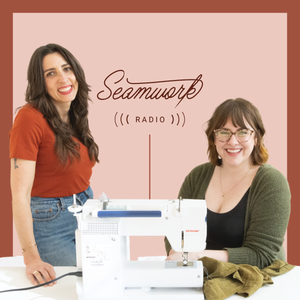 Seamwork Radio: Sewing and Creativity
Seamwork Radio: Sewing and Creativity
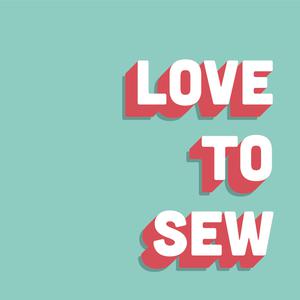 Love to Sew Podcast
Love to Sew Podcast
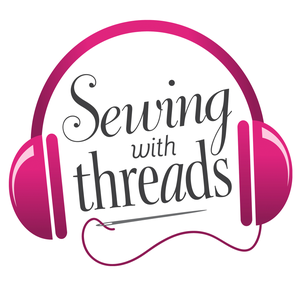 Threads Magazine Podcast: "Sewing With Threads"
Threads Magazine Podcast: "Sewing With Threads"
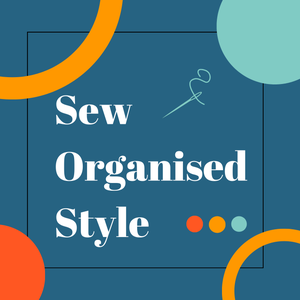 Sew-organised-style
Sew-organised-style
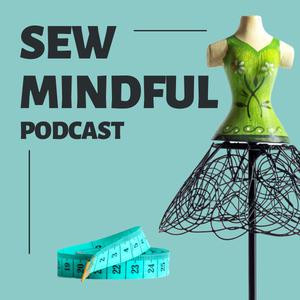 Sew Mindful Podcast
Sew Mindful Podcast
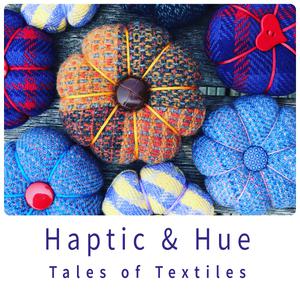 Haptic & Hue
Haptic & Hue